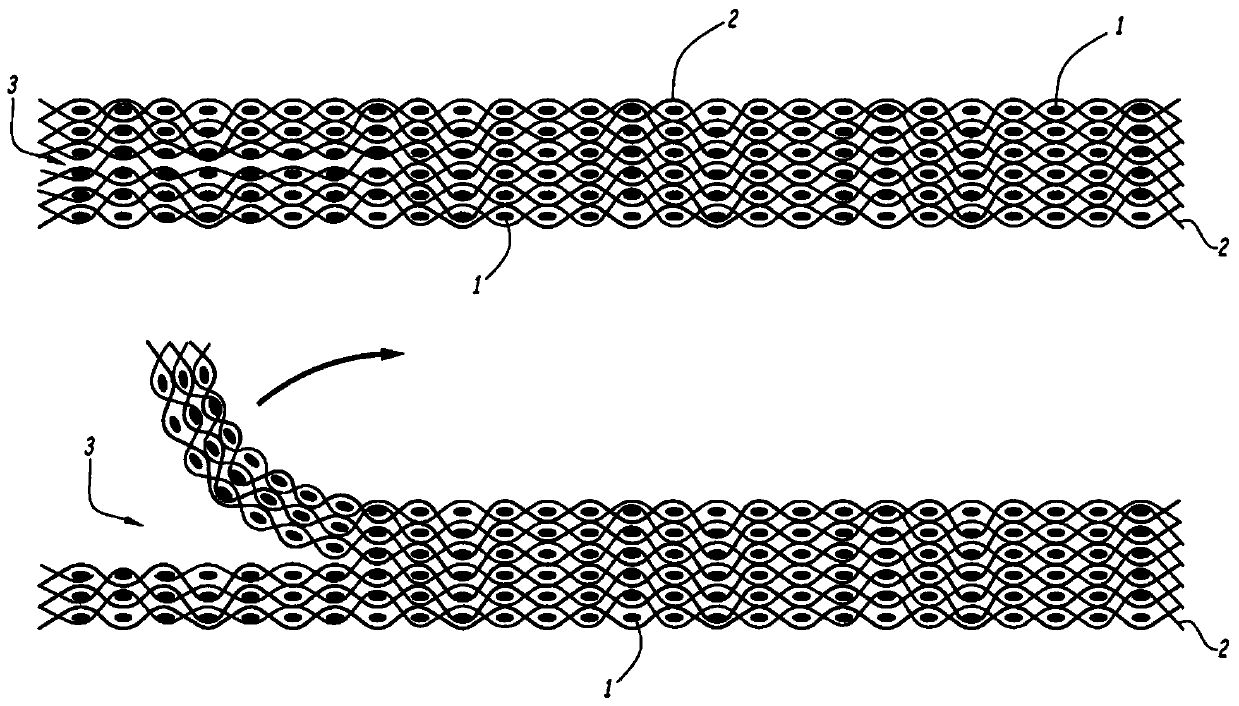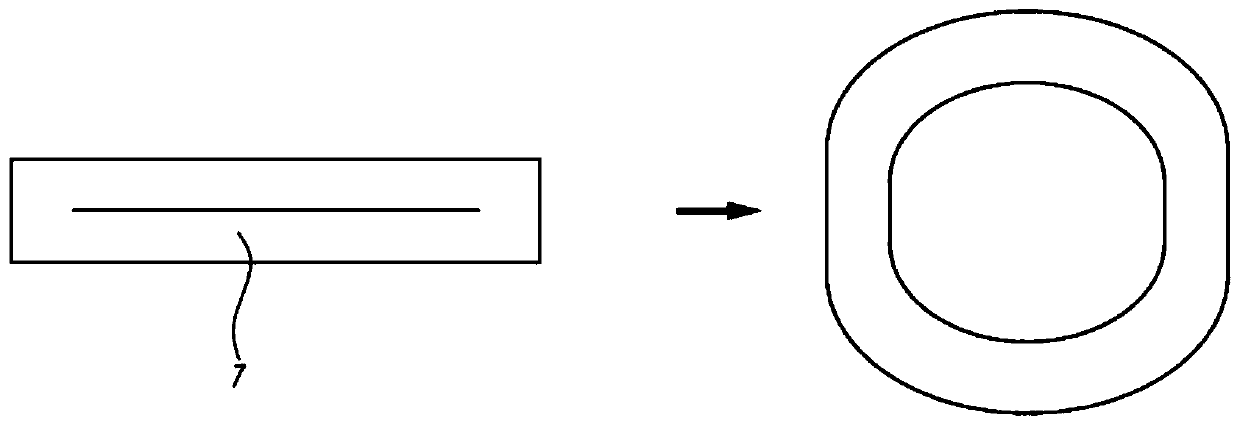Fibrous structure and 3D preform for a composite part
A fiber structure, prefabricated technology, used in textiles and paper, textiles, fabrics, etc.
- Summary
- Abstract
- Description
- Claims
- Application Information
AI Technical Summary
Problems solved by technology
Method used
Image
Examples
example 1
[0102] figure 1 6 consecutive horizontal planes of the woven fabric showing the fibrous structure obtained by 3D weaving, where weft yarn 1 is visible in cross-section and warp yarn 2 is shown longitudinally.
[0103] The fiber structure (on the left side of the diagram) consists of 6 layers of weft yarns and 12 layers of warp yarns. On the right side of the figure, all warp and weft layers are linked. On the left side, the two central weft yarn layers are not bonded together by the warp yarns in the 7 perpendicular planes of the weft yarns, where this is referred to herein as the debonding zone, reference 3.
[0104] Fiber volume ratio: 50%.
[0105] Count of carbon yarn in warp and weft: 3K
[0106] Thickness of the structure (and prefab): about 3mm.
[0107] The warp and weft yarns were carbon yarns impregnated with polyepoxide resin at a weight of approximately 7% of the weight of the complete structure. The structure is laid out in a mold, passed through an oven to s...
example 2
[0112] Based on the principle of Example 1, it is possible to weave according to figure 2 (Left) Fibrous structure comprising a first debonding zone 4 on the left and two debonding zones 5 and 6 on the right. This flat structure (left side of the diagram) can then be deployed in the form of a 3D deployed structure comprising 5 branches (right side of the diagram).
[0113] The warp and weft yarns were carbon yarns impregnated with polyepoxide resin at a weight of approximately 5% of the weight of the complete structure. The structure is laid out in a mold, passed through an oven to soften the resin, and then cooled to create a 3D preform. In the same mold or in another mold, the 3D preform will then be infiltrated or infused with the PEEK matrix to form the final part.
example 3
[0115] According to the same principle as Example 1, it is possible to weave according to image 3 (Left) Fibrous structure including a central debonding zone 7 . This flat structure (left-hand diagram) can then be deployed in the form of a hollow 3D or hollow tubular structure (right-hand diagram).
[0116] The warp and weft yarns are carbon yarns impregnated with polyamide resin, the weight of which is approximately 10% of the weight of the complete structure. The structure is laid out in a mold, passed through an oven to soften the resin, and then cooled to create a 3D preform. In the same mold or in another mold, the 3D preform will then be infiltrated or infused with the PEEK matrix to form the final part.
[0117] The debonding embodiment can be varied, for example, by forming the yarns into a warp and combining both types of yarns in the same structure.
PUM
| Property | Measurement | Unit |
|---|---|---|
| Thickness | aaaaa | aaaaa |
Abstract
Description
Claims
Application Information
 Login to View More
Login to View More - R&D
- Intellectual Property
- Life Sciences
- Materials
- Tech Scout
- Unparalleled Data Quality
- Higher Quality Content
- 60% Fewer Hallucinations
Browse by: Latest US Patents, China's latest patents, Technical Efficacy Thesaurus, Application Domain, Technology Topic, Popular Technical Reports.
© 2025 PatSnap. All rights reserved.Legal|Privacy policy|Modern Slavery Act Transparency Statement|Sitemap|About US| Contact US: help@patsnap.com



